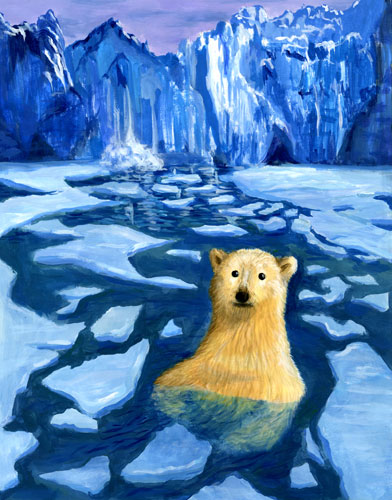Clear and chilly this early-evening Wednesday here in California’s Central Valley — yet again we scored on another gorgeous day. Reportedly, more to follow in the next few days.
News on the climate front as a remarkable hot spell around the South Pole has scientists feeling a little shitty about the future. Even the UN chief is getting a little antsy.
Climate change is indeed real:
Ocean researchers sailing off Antarctica this year are stunned by a persistent and long-lasting ocean heat wave and the dramatic decline of sea ice in the region. Does it mark the start of extreme change like the Arctic has experienced since the 1980s?https://t.co/HaMRWCDsS2
— Inside Climate News (@insideclimate) February 15, 2023
Potent details from Inside Climate News earlier this week:
Research scientists on ships along Antarctica’s west coast said their recent voyages have been marked by an eerily warm ocean and record-low sea ice coverage—extreme climate conditions, even compared to the big changes of recent decades, when the region warmed much faster than the global average.
Despite “that extraordinary change, what we’ve seen this year is dramatic,” said University of Delaware oceanographer Carlos Moffat last week from Punta Arenas, Chile, after completing a research cruise aboard the RV Laurence M. Gould to collect data on penguin feeding, as well as on ice and oceans as chief scientist for the Palmer Long Term Ecological Research program.
“Even as somebody who’s been looking at these changing systems for a few decades, I was taken aback by what I saw, by the degree of warming that I saw,” he said. “We don’t know how long this is going to last. We don’t fully understand the consequences of this kind of event, but this looks like an extraordinary marine heatwave.”
And background on the event via the Guardian this morning:
The area of sea ice around Antarctica has hit a record low, with scientists reporting “never having seen such an extreme situation before”. The ice extent is expected to shrink even further before this year’s summer melting season ends.
The impact of the climate crisis in melting sea ice in the Arctic is clear in the records that stretch back to 1979. Antarctic sea ice varies much more from year to year, which has made it harder to see an effect from global heating.
However, “remarkable” losses of Antarctic sea ice in the last six years indicate that the record levels of heat now in the ocean and related changes in weather patterns may mean that the climate crisis is finally manifesting in the observations.
[…]
“I have never seen such an extreme, ice-free situation here before,” said Prof Karsten Gohl, from the Helmholtz Centre for Polar and Marine Research in the Alfred Wegener Institute, Germany, and who first visited the region in 1994.
Gohl, on board the research vessel Polarstern in Antarctica, said: “The continental shelf, an area the size of Germany, is now completely ice-free. It is troubling to consider how quickly this change has taken place.”
Prof Christian Haas, also at the Helmholtz Centre, said: “The rapid decline in sea ice over the past six years is quite remarkable, since the ice cover hardly changed at all in the 35 years before.”
Yesterday, UN Secretary-General António Guterres warned about the sea-level rise from all that melting ice: ‘“The impact of rising seas is already creating new sources of instability and conflict … We would witness a mass exodus of entire populations on a biblical scale, and we would see ever-fiercer competition for fresh water, land and other resources … Rising seas are sinking futures … Sea level rise is not only a threat in itself. It is a threat multiplier.”‘
Plus, a final kicker of similar shit at The Washington Post this afternoon: ‘The results from overlapping teams of more than two dozen scientists, published Wednesday in two papers in the journal Nature, reveal the extent to which human-caused warming could destabilize glaciers in West Antarctica that could ultimately raise global sea level by 10 feet if they disintegrate over the coming centuries.‘
Hopefully, not on this scale of CGI horror:
Sea water or not, once again here we are…
 (Illustration out front found here.)
(Illustration out front found here.)